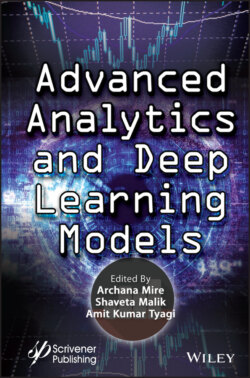Читать книгу Advanced Analytics and Deep Learning Models - Группа авторов - Страница 53
3.1 Introduction
ОглавлениеIn today’s digital age, there is massive amount of information available over the internet; it provides the users with enormous amount of resources or services pertaining to any domain. As the information over the internet rises, the number of resources and options also tend to increase exponentially, causing information overload which eventually creates a lot of confusion among the clients, thus making the decision-making process strenuous [1].
Recommender systems are widely used in the decision-making process and deal with the information overload. Multi-criteria recommendation system is a type of recommender system that utilizes user’s rating and preference on several criteria to make the optimal decision for the respective client. It can thus make a personalized recommendation based on the user’s demands and choices. In this paper, we compare the performance of the recommendation system among three types of settings, first by using the ratings of all the criteria using the traditional approach, second by taking multiple-criteria preference as circumstance, and third by make use of chosen criteria ratings as circumstances. Thus, recommender system is a significant tool used in the decision-making process. It produces a recommendation list items to a client based on the client’s previous likings [28–31].
The importance of recommender systems has been increasing day by day especially for the business applications, as the use of recommender system proved to be quite successful in the ecommerce sector like amazon. Many business applications started incorporating it in variety of other sectors including movie and music recommendation, books and e-books, tourism industry, hotels, restaurant’s, news, etc. These systems assist the users in figuring out the most relevant information based on their needs instead of showing an indistinguishable amount of data that is irrelevant to the user. Hence, it is crucial for the recommender systems to have high predictive accuracy and allocate the desired items at the top of the recommendation list based on the specific user’s requirements [16, 21].
The popularity of mobile devices among the users has increased the dependency on the mobile servers. People get lots of information including business information, product information, and recommendation information from the mobile devices. One of the important applications of mobile servers is movie recommendation. A movie recommendation system has been an effective tool in recommending movies to the users which, in turn, helps the viewers to cope with multiple movie options available and help them in finding the appropriate movies conveniently. However, recommendation is a complicated task as it involves various tastes of users, different genres of movies, etc. Hence, many techniques have been used to enhance the performance of the recommendation system [32].
We have a massive platform that can be used for giving individual thoughts and reviews. As there is so much data flowing over the internet, it is significant to derive new ways to collect and produce the information. Recommender system is an important component of many businesses, especially in the ecommerce domain. It usually exploits the preference history of the users to provide them with the suitable recommendations, whereas a traditional recommender system can provide only one rating value to an item [5, 24–26].
